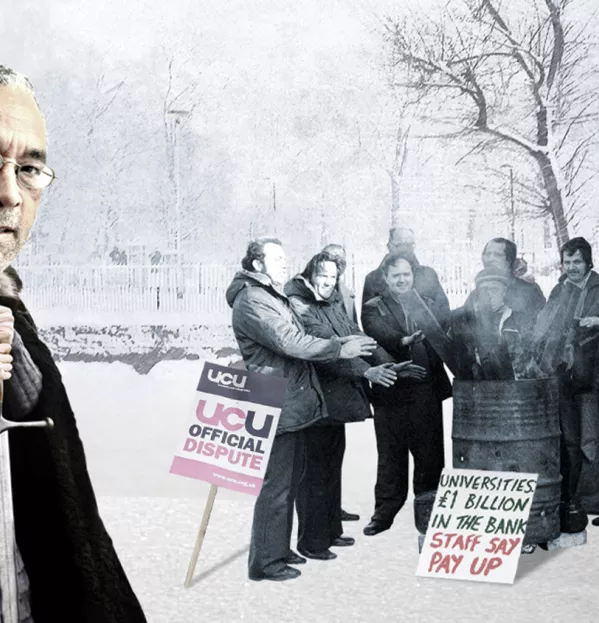Recently, I had the slightly surreal experience of walking into college past a picket line of striking lecturers who were almost invisible amid a blizzard of snow. I had to admire their dedication, and there’s little doubt in my mind that there’s a genuine sense of grievance among frontline FE staff.
It’s surprisingly difficult to get reliable figures on what lecturers in English FE colleges earn. Amazingly, FE colleges have no legal obligation to provide information on staff or salary levels. The Association of Colleges attempts to collect this annually, but fewer than half of colleges bother to return any data.
So I’ve turned to the Office for National Statistics. Last year, it reported on average pay across the UK, using data from more than 21 million people employed in 2014. Brace yourselves, it makes grim reading: among academic professionals, the highest average annual salary was for university lecturers, calculated as £40,054. Secondary school teachers came in at £32,524, and primary and nursery teachers at £29,908. FE lecturers were the lowest paid of the education sector, at £28,486. This means, in 2014, university lecturers earned on average 41 per cent more than those in FE, while secondary teachers earned 14 per cent more and primary teachers 5 per cent more.
The situation has hardly changed since then, although the university sector’s pay, perhaps owing to the influx of income from student loans, has pulled further ahead. FE lecturers remain the lowest-paid teachers of all, and the pay awards they have received over the past four years have been underwhelming, to say the least. The FE and skills sector, we are told by politicians of all parties, is vital to Britain’s competitive success. So why are FE teachers at the bottom of the pile when it comes to pay?
One reason is that the FE colleges that employ them are broke. The thin gruel of funding for 16- to 18-year-olds is getting thinner and thinner, as inflation nibbles it away, while adult funding has reached starvation point. The apprenticeship dinner looks big and appetising, but the menu is so complicated, colleges are struggling to get employers to put their order in. Slowly but surely, many FE colleges are wasting away. Few can afford to pay their staff higher salaries. Many can’t even implement the recommended national pay awards.
So what should FE lecturers be paid? My answer would be, as a starting point, at least as much as the average secondary school teacher, as the level of skill and professionalism required is surely very similar. That would mean a walloping big pay rise, but, of course, that would also mean most FE colleges going bust almost overnight.
So how can we possibly find the extra money to afford the sort of pay rise that’s needed? The obvious answer is a national mechanism that reinstates pay negotiation for all staff in English FE colleges, with pay awards funded by national government. Otherwise, in FE industrial relations, winter is coming…
Andy Forbes is principal and CEO of the College of Haringey, Enfield and North East London
